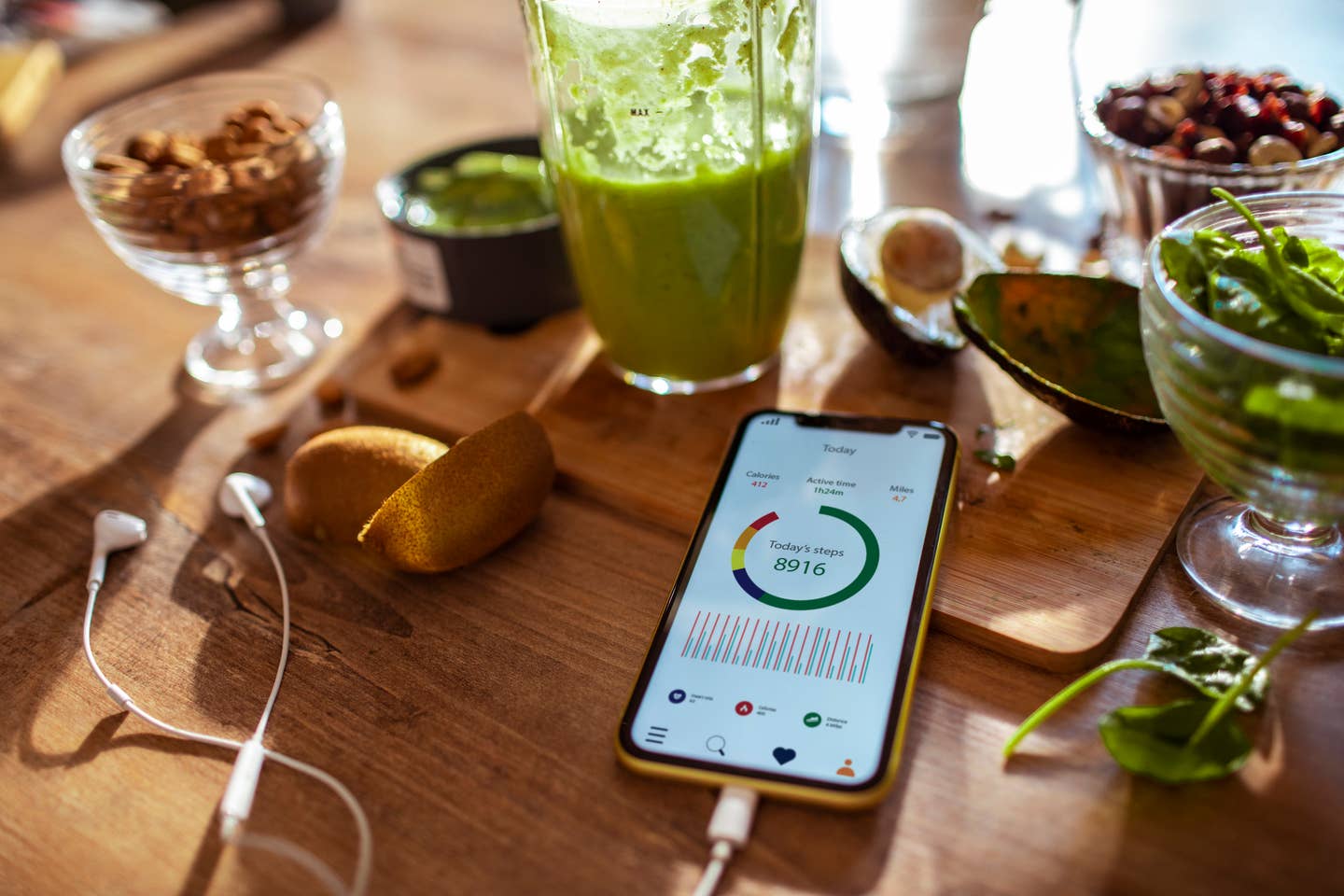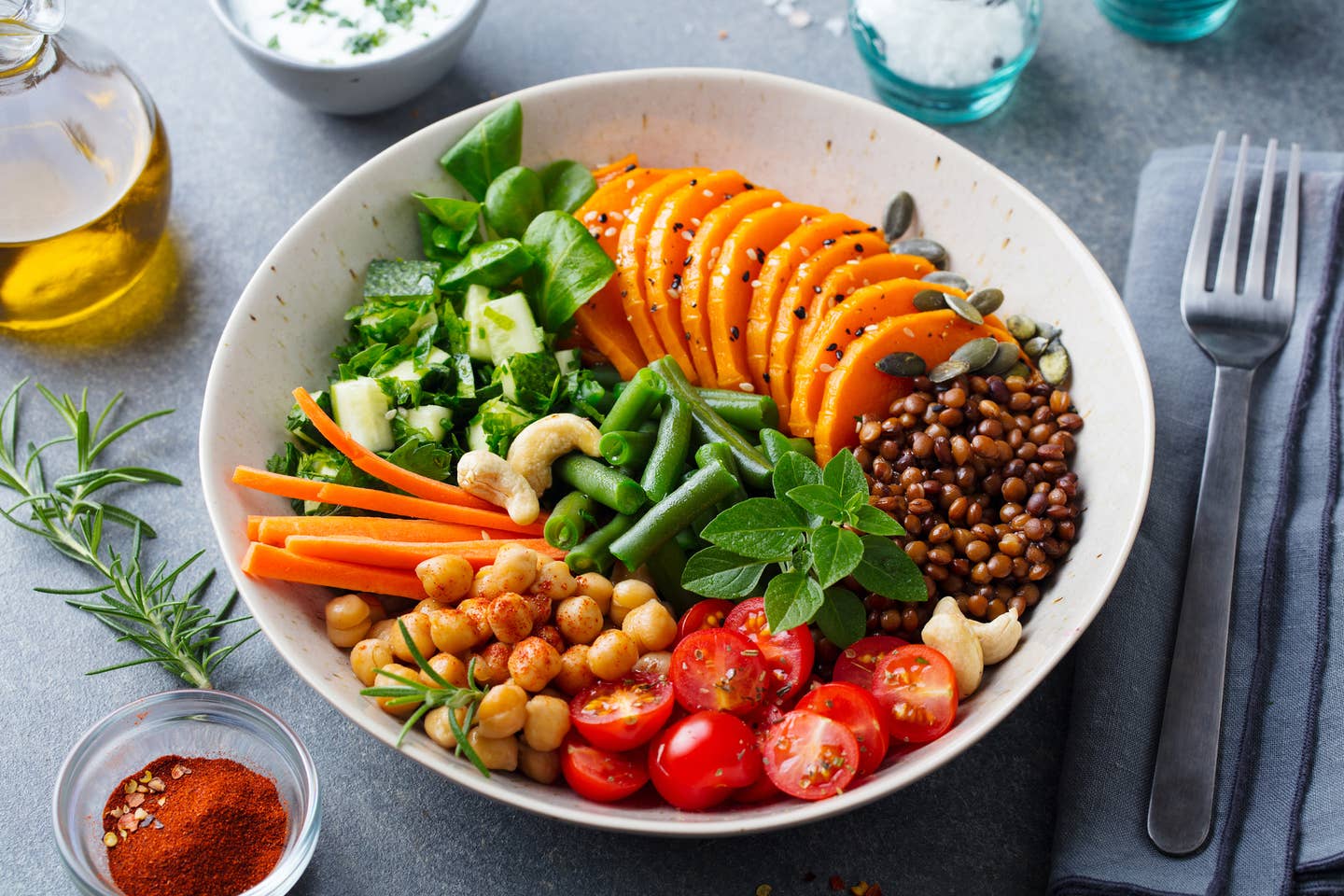
Green Tea Can Help You Lose Weight and Burn Fat, According to Studies
The health benefits of green tea are impressive: Studies show that it helps your body fight disease, lowers the risk of cancer, and even helps your body kick fat-burning into high gear, making it easier to lose weight. Here's how it works, how to use it safely, and what you need to know about drinking green tea for fat-burning effects.
Chances are if you have been paying attention and like to read up on ways to be healthier, you've heard about the benefits of green tea. The active ingredient in green tea is a polyphenol called Epigallocatechin Gallate (or EGCG for short). That's one reason Matcha tea is popular – it contains the highest amount of EGCG of any tea on the market.
EGCG has been shown to help animals lose body fat by increasing their metabolism. Green tea is associated with dramatic weight loss in the lab. Now human studies are beginning to show that this works for us as well.
Green Tea Can Help Aid in Weight Loss
Black, green, and oolong tea all come from the same plant leaves, but the amount of EGCG is higher in green tea due to the way it is processed, according to the Academy of Nutrition and Dietetics (AND). Polyphenols are powerful antioxidants that have been shown in studies to reduce cell damage, fight inflammation, and lower the risk of type 2 diabetes. EGCG especially has been found to help control blood sugar, which can help with weight loss.
During the processing of teas, some of the polyphenols are destroyed, so tea powders, decaffeinated teas, and bottled tea drinks may not deliver as many polyphenols as tea bags steeped in hot water. Green tea has more EGCG because it is less processed than black, keeping the polyphenols intact.
The longer you steep your tea (at least ten minutes) the more EGCG gets released. Here's what you need to know to try adding green tea to your diet to help your body get the benefits of this powerful polyphenol. Another important note: Some studies suggest that caffeine and catechins, or type of polyphenol, appear to help with weight loss. But, these studies have also found that decaffeinated green tea does not appear to produce the same results
If the scientific studies are reliable, they suggest that EGCG is the closest thing we have found to a magic pill for weight loss (and we don't suggest you take supplements of any kind, even green tea extract since when processed and powdered, the polyphenols are deactivated and destroyed). So what's the best way to add drinking green tea to your day as part of a healthy diet to achieve weight loss, if losing weight is on your list of health goals?
First, let's examine the studies and what they tell us about tea and body weight.
Tea Linked to Lower Risk of Type 2 Diabetes
Another new study just published has found that people who drink tea (black, oolong, or green) are less likely to develop type 2 diabetes than people who don’t drink tea or drink very little tea. Looking at data from over 1 million people who had been followed in 19 studies, the researchers found that people who routinely drink several cups of tea daily were 17 percent less likely to have type 2 diabetes over 10 years.
How much tea does it take to lower your risk? Four or more cups a day were required to see such dramatic results. But even less tea had a beneficial effect, the researchers suggest.
Green Tea and Metabolism
We found other studies that have shown that green tea helps speed up fat metabolism, which helps promote weight loss when paired with a healthy diet high in plant-based whole foods and low in nutrient-void processed foods such as sugar, white flour, and junk food snacks.
The fact that EGCG promotes fat burning and natural weight loss in mice has been known for years. So how do you use this information in your life, if losing weight is on your list of health goals? Yes, you may want to drink more green tea, but you can do it without having to attach an IV drip of Matcha to your arm.
Here's the research, backed by science and repeated in several studies.
How Green Tea Works in the Body
Green tea helps turn up the body's natural fat-burning process. It also has other remarkable health benefits, studies have shown, from metabolizing fat to fighting tumor growth.
Green tea has been shown in studies to contain a remarkable compound called EGCG, or Epigallocatechin Gallate, which is such a powerful polyphenol that it has been shown in the lab to halt tumor growth in its tracks. Other teas, such as Oolong are also healthy, but green tea has the most EGCG of any other tea.
EGCG has been called a "chemopreventative" polyphenol since it has been shown in cancer studies to hinder growth. The way it does that is to use a "fuel gauge" pathway called AMPK in the body that essentially keeps tabs on when fuel is plentiful (so cells are prompted to grow) and when fuel supply is short (so cells are instructed not to grow).
While this has major implications for cancer, checking it from growing and proliferating, EGCG also manages to help send a message that "fuel is short" which causes the cells to instead start burning fat.
EGCG Prompts the Body's Fat Burning Signal
Studies show that when EGCG is present, it uses your body's natural pathways to signal to your body that "fuel is scarce" which then turns on your natural signals to start fat burning instead of looking for ready energy.
This means that drinking green tea, even as little as two cups a day, can help your body burn more fat, especially belly fat. In one often-cited study, subjects who were given green tea extract lost between .2 and 3.5 kg more in 12 weeks than those not given green tea extract. While 3.5 kilograms doesn't sound like a lot, this means that by changing nothing else (diet or exercise) you can lose six pounds in 12 weeks with the help of green tea.
How to Prepare Green Tea for Best Results
When it comes to brewing your green tea, don't overboil the water, since if you put the teabag in boiling water it can damage the catechins, according to The Times of India. Instead, boil the water first and let it cool off for several minutes before pouring it onto your teabag.
The latest research also suggests that you drink it after a meal, for best results. Other studies suggest drinking green tea first thing in the morning, to turn up your metabolism. Skip the sugary matcha drinks that add sweeteners and creamers, since those dull the impact.
Choose a green tea with caffeine since the studies show that for weight loss, catechins and caffeine worked together to help speed up the metabolism. One important thing to note about most of these studies is they were done with green tea extract, not brewed tea. You can drink 2 to 3 cups of tea a day to get the desired effect. Green tea extract has been shown to lower cholesterol in study subjects and also help lower blood pressure among obese study participants.
Editors' Note: Before you take any supplement, even one that sounds natural such as green tea extract, check with your doctor and be aware that caffeine is a powerful stimulant. Additionally, polyphenols are delicate plant compounds that get destroyed and deactivated in the process of making pills, powders, and other supplements.
Drinking all the green tea in the world will not work without also eating a healthy diet high in plant-based whole foods, and getting daily exercise. There is no "magic pill," not even EGCG, so if you are hoping to be healthy for three days, instead of trying to restrict calories, eat a diet of whole foods, especially plant-based meals full of salad greens, vegetables, whole grains, fruit, and legumes.
How to Add Green Tea to a Healthy Diet for Weight Loss
If you want to get healthy, banish the bloat, and perhaps even lose a little weight, try this plan, with tips on how to eat to be your healthiest, which means eating a diet of whole foods, mostly vegetables, fruit, whole grains like quinoa, and legumes, which are full of fiber, complex carbs, and plant-based clean protein.
The idea is to skip added sugar, and processed foods like chips, as well as ditch meat and dairy (which cause inflammation) and focus on whole plant-based foods. For snacks, count on whole fruit, nuts, and seeds that are high in nutrients and fiber, and keep you full longer.
5 Tips to Lose Weight and Be Your Healthiest
With the research to support green tea for weight loss in mind, we came up with 4 tips for healthy eating, including drinking green tea while giving up the usual suspects that cause weight gain: Sugar, refined carbs, full-fat dairy, and red meat, both of which can be inflammatory and are high in saturated fat, the unhealthy kind.
If you decide to try it you can enjoy eating a healthy diet while sipping green tea instead of your usual beverage and if you stick to the plan, chances are on the fourth day you will feel lighter and have more energy to help you power through your walks, workouts and evenings of dancing or taking after-dinner walks with your best friend.
1. Eat Whole Foods, Mostly Plants, Not Too Much
The prolific author and food philosopher Michael Pollan famously said that everything he's ever learned about food and health can be summed up in seven words: "Eat food, not too much, mostly plants." That's about as good as it gets when you try to clean up your act and do a healthy version of a "detox diet" for three days.
Eating clean does not mean not eating. The research tells us that detox diets don't work, but the urge to detox is a healthy one. How to split the difference? Tell yourself: If I could grow it from the ground, I can eat it. Then choose the most natural, minimally processed foods you can find and eat those. And keep portions in check.
The 12 healthiest foods to eat to detox your body while still eating healthy
2. Eat vegetables and have a salad to keep blood sugar under control
Nutrient-dense vegetables and greens. When you want to lose weight, add a salad to every meal, or make a meal out of a salad. A study found that people who eat a salad, even if they also eat a full-calorie meal, have lower blood sugar after the meal than if they had left off the salad entirely.
Don't be shy about starting a meal with a salad, or even if you are full, do add a side salad. These high-fiber, nutrient-rich greens help add healthy bacteria to your gut microbiome and neutralize whatever else you are eating, so your insulin does not spike, your body does not get the signal to store fat, and your healthy gut keeps your body moving food through the digestive system at the right speed for burning fuel without storing it or getting hungry.
3. Eat fruit and don't worry about fructose in whole fruit
People who eat dried fruit daily have smaller waists and lower BMI than those who don't, according to a study. Eating 2 servings of whole fruit a day is linked to being slimmer and healthier than not eating fruit. Don't be scared of fructose, the natural sugar in your berries or peach. It burns slowly, like a candle, giving you energy for hours. High fructose corn syrup is another story since it's a super-condensed version of actual fructose. The sugar in a pear or apple comes naturally packaged by Mother Nature in a snack full of fiber, antioxidants, and healthy vitamins that your body needs for energy and to fuel a healthy immune system.
4. Add legumes, nuts, and seeds to every meal for plant-based protein
When you eat plant-based, everyone will ask you, where do you get your protein? The fact is, vegetables are high in protein, as are legumes, nuts, and seeds. So to follow a plant-based approach, even for just three days, make sure to get a healthy dose of protein in every meal or snack.
Most people get too much protein in a day. Women only need 45 to 50 grams of protein a day and men need 55 to 70 depending on their level of activity and their overall size and whether they are training for an event. The average American gets more protein than their body needs, and when that happens you either store it as excess calories (and may gain weight) or just don't use it and it gets passed from the body as waste. Your body "tops off" at the recommended daily amount, so more is not better.
5. Drink 2 to 3 Cups of Green Tea a Day
Start your day with a cup of steeped green tea, and then drink a cup after each meal. It may not be the "magic pill" but green tea is so full of healthy antioxidants, it certainly can't hurt.
Here are the 20 vegetables with the most protein per serving.
Here are 15 legumes with the most protein.
Here are 11 nuts with the most protein.
Here are 6 seeds with the most protein per serving.
Bottom Line: To be healthy, lose weight and burn fat, drink two to three cups of caffeinated green tea a day and eat a whole-food, plant-based diet full of vegetables, fruit, salad greens, and clean protein such as legumes, tofu, and quinoa. That's a great start!
If you want to try a 2-week Clean Eating Plan, check out our free meal plan and keep going!
For more great expert advice, visit The Beet's Health & Nutrition articles.
The 13 Best Foods to Boost Your Immune System to Fight Off COVID-19 Symptoms
Here are the best foods to eat on repeat, to boost immunity and fight inflammation. And stay off the red meat.
1. Citrus for Your Cells and Healing
Your body does not produce vitamin C, which means you need to get it daily to have enough to create healthy collagen (the building blocks for your skin and healing).The recommended daily amount to shoot for is 65 to 90 milligrams a day, which is the equivalent of one small glass of orange juice or eating a whole grapefruit. Almost all citrus fruits are high in vitamin C. With such a variety to choose from, it's easy to get your fill.
2. Red Peppers to Pump Up Skin and Boost Immunity with Twice the Amount of Vitamin C as an Orange Has
Want even more vitamin C, add red bell peppers to your salad or pasta sauce. One medium-sized red bell pepper contains 152 milligrams of vitamin C, or enough to fulfill your RDA. Peppers are also a great source of beta carotene, a precursor of vitamin A (retinol). How much beta carotene do you need a day: You should try to get 75 to 180 micrograms a day which is the equivalent of one medium bell pepper a day. But a red pepper has more than two and a half times your RDA for vitamin C so eat them all winter long.
3. Broccoli, But Eat It Nearly Raw, to get the Most Nutrients Out of It!
Broccoli may be the most super of superfoods on the planet. It's rich in vitamins A and C as well as E. The phytochemicals in it are great for arming and strengthening your immune system.How much lutein should you eat in a day: There is no RDA for lutein, but experts say get at least 6 milligrams.
4. Garlic, Eaten By the Clove
Garlic isn't just a great flavor-enhancer, it's essential for your health. Garlic’s immune-boosting properties are tied to its sulfur-containing compounds, such as allicin. Allicin is thought to improve your immune cells' ability to fight off colds and flu, and viruses of all kinds. (Smelling more garlic on the subway? It could be smart coronavirus management.) Garlic also has anti-microbial and anti-viral properties thought to fight off infections. How much should you eat in a day: The optimal amount of garlic to eat is more than most of us can fathom: Two to three cloves a day. While that may not be doable, realistically, some people take garlic supplements to get 300-mg dried garlic in a powdered tablet.
5. Ginger is a Power Player for Immunity and Digestion
Ginger is another ingredient that has super properties when it comes to fighting off illness. It has been shown to decrease inflammation, which can help if you get swollen glands or a sore throat or any inflammatory ailment. Gingerol, the main bioactive compound in ginger, is a relative of capsaicin, and is responsible for much of its medicinal properties. It has powerful anti-inflammatory and antioxidant benefits.How much should you eat a day: Most recommendations land on 3–4 grams of ginger extract a day, or up to four cups of ginger tea, but no more than 1 gram a day if you are pregnant. Some studies have linked high dosages to an increased risk of miscarriage.
6. Spinach, Wilted, Not Steamed (Also Kale and Dark Leafy Greens of All Kinds)
Spinach is not only packed with vitamin C but also antioxidants and beta carotene, both of which give your immune system the healthy boost it needs to fight off invaders. Don't overcook your spinach, since the more it's cooked the less active the antioxidants will be. If you eat it raw or lightly steamed you'll keep more of the nutrients intact.How much should you eat a day: Aim for 1 cup fresh spinach or 1/2 cup cooked per day, but this is the right moment to try the raw or slightly wilted approach. Order warm or wilted spinach salad when you go out, or make it yourself with olive oil, pine nuts, and vegan parm.
7. Almonds for the Win, Pop Them Like Candy
Vitamin E in almonds will help ward off colds and flu and is key to your immune system humming along. It’s a fat-soluble molecule, meaning it requires the presence of fat to be absorbed, so nuts are the perfect package for E to make it into your system.How much should you eat in a day: A half-cup serving, or 46 whole, shelled almonds, provides almost 100 percent of your RDA of vitamin E. Almonds are great for you but they don't come with a "free" pass, since 1/4 cup is a serving and has 162 calories, so double that for your RDA and you're eating about 325 calories. Throw them into smoothies instead.
8. Turmeric to Fight Inflammation, Put it In Your Tea or Smoothie
This highly pigmented spice is known for its anti-inflammatory qualities. How it helps immunity? It decreases exercise-induced muscle damage. Tumeric bolsters the immune system by stimulating antibody formation and people with auto-immune diseases are told by their doctors to take 500 mg of curcumin daily to reduce inflammation and stave off soreness.How much should you eat in a day: Try adding extra Tumeric to your diet during periods of stress or during flu season. Or take 500-2,000 mg of curcumin to help fight inflammation and power up your immune system.
9. Green Tea by the Gallon, Skip the Coffee and Sip this Instead
Green tea has high levels of EGCG, (epigallocatechin gallate) a hard-working antioxidant that is known to boost immune function. Green tea is steamed so the EGCG is still active when you drink it.Green tea also contains L-theanine, an anti-oxidant which appears to help in the production of T-cells in your body, the killer L-theanine may aid in the production of germ-fighting compounds in your T-cells.How much green tea should you drink in a day: The optimal amount is three to five cups in a day, but most people won't get to that level. Any amount is better than nothing. Swap out a usual beverage daily for green tea could improve your health.
10. Papaya, The Tropical Healer to Keep You Vacation-Healthy All Year Round
Papaya delivers over twice your recommended daily amount of vitamin C in one fruit. It also contains an enzyme called papain that has anti-inflammatory effects -- and inflammation is one factor in most illnesses, so avoiding it can help your body fight off bacterial infections like sinusitis.Papayas contain potassium, vitamin B, and folate, which is a powerful cell rebuilder. Exactly how folic acid works to build immunity is linked to its role in protein synthesis, and researchers think that any mechanism in which cells proliferate can be affected (which is why it's critical for pregnant women). People who are folate-deficient have compromised immune systems.How much folate should you eat a day: Whether you are pregnant or not, folate (vitamin B9) is a great vitamin to keep your cells healthy and strong. The recommendation is 400 micrograms a day, or get it from legumes, spinach, papayas, and avocados.
11. Kiwis, a Vitamin Powerhouse
Kiwis are full of folate, vitamin K, vitamin C, and potassium. These vitamins in combination work in the body to build healthy cells, fight infection and keep your immune system humming along. Vitamin K deficiency is rare but when people don't have enough they suffer from weak bones and compromised immune systems. The inflammation system in the body is also dependent on vitamin K, especially your killer T cells that mobilize and fight cancer and other diseases.How much should you eat in a day: Vitamin K is one of the unsung heroes of the body. Women should get 90 micrograms a day, and men should have 120 micrograms.
12. Sunflower seeds to sprinkle on salads or eat by themselves
Sunflower seeds are especially healthy since they provide phosphorus, magnesium and vitamin B-6 as well as vitamin E. Your immune system needs vitamin E to function at full throttle. You can also get vitamin E from avocados and spinach and broccoli.How much should you eat in a day: Anywhere from 1 ounce (30 grams) per day to a healthy handful is considered healthy, but because they are high in sodium you might want to refrain from eating the entire bag. The raw seeds have 204 calories per quarter cup.
13. Miso, Soup or Paste to Add to Your Soups and Salad Dressings
The nutrients in miso -- which is a soybean paste that has been fermented with salt and a koji starter -- boosts immune system function by delivering healthy probiotics to the gut, making your microbiome healthier. How does Miso benefit your immune system? It is a "sirt" food, which are foods that contain high levels of ‘sirtuins’ or proteins that regulate cells and activate metabolism. A diet high in sirts is believed to lead to weight loss, increased wellness and longevity.How much should you eat in a day? Researchers believe that consuming one bowl of miso soup per day, as is the tradition in Japan, lowers the risks of breast cancer. Other than its high sodium content there is no reason to stay away from miso with all its varied health benefits. We say cheers to that.
More From The Beet






